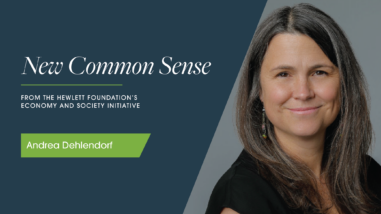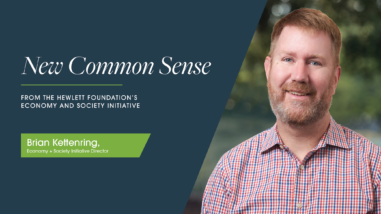Harvard University
For Implementing And Evaluating The Impact Of A Peer-to-peer Teaching Model In Kenya
-
Amount$75,251
-
Program
-
Date Awarded1/27/2012
-
Term19 Months
-
Type of SupportProject
Overview
Many first, second, and third graders in Kenya are struggling to learn to read. A supplement grant to Harvard University would continue to support the development, implementation, and evaluation of a simple, low-cost method to improve reading achievement in which sixth graders tutor second and third graders to help them become more fluent readers. This project is being implemented in 50 schools in Kenya as part of a larger reading program to improve learning, and would be evaluated through a randomized impact evaluation to examine its effectiveness. This supplement grant would also extend the impact evaluation of the larger reading program for an additional year.
About the Grantee
Grantee Website
www.harvard.edu
Address
Office for Sponsored Programs
1033 Massachusetts Avenue, 5th Floor, Cambridge, MA, 02138, United States
Grants to this Grantee
for support of and learning from a community of practice focused on system transformation
The Deeper Learning Dozen is a project of the Harvard Graduate School of Education. The project supports a community of practice with 12 superintendents and their team members, all of whom are committed to making the changes necessary so that all young people and adults equitably experience deeper learning. The work will result in an understanding of how to create changes in systems, policies, practices, roles, beliefs, and assumptions. This grant will expand how the project shares its learnings, including through a book that reflects on past school reform approaches in contrast with some of the project’s work. (Substrategy: District Deep Dives and Networks)
for The Lab for Democracy Renovation
The Lab for Democracy Renovation sits within Harvard Kennedy School’s Ash Center for Democratic Governance and Innovation. Members of the lab research and develop governance innovations needed to achieve healthy democracy in the 21st century — for massively scaled up, complex, digitally powered societies with significant social heterogeneity. The lab also investigates strategies for bringing those governance innovations into existence. This grant supports the general operations of the lab and its four focus work areas: governance of emerging technology, political economy for power-sharing liberalism, aspirational federalism, and the reimagining of American democracy.
for Center for Labor and a Just Economy’s Clean Slate for Worker Power (Phase III)
The Center for Labor and a Just Economy is Harvard University’s hub of creative research, policy, and strategies focusing on empowering working people to build an equitable economy and resilient democracy. Through convening stakeholders, disseminating ideas, advising policymakers, and shaping how the media understands progressive labor issues, the center is committed to reimagining the law and developing paradigm-shifting policy. Launched in 2018, its Clean Slate for Worker Power project is based on a reimagined vision of labor law that works for all. It focuses on advancing pragmatic and innovative policy solutions to enable working people to build countervailing power.



